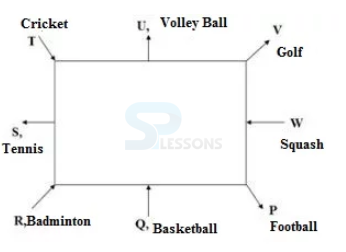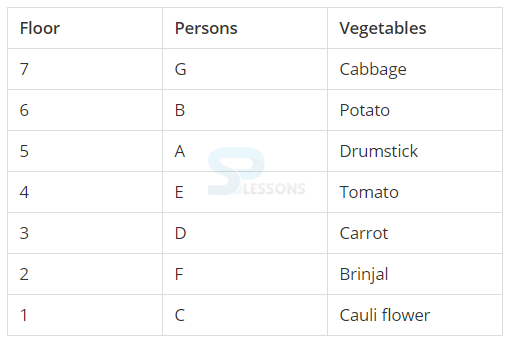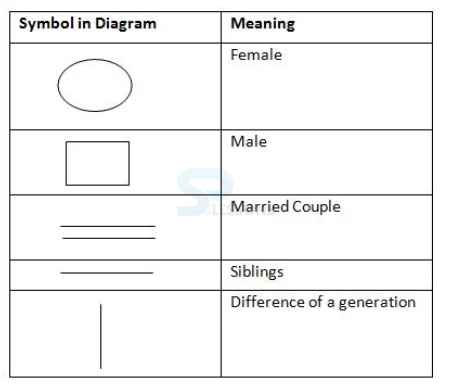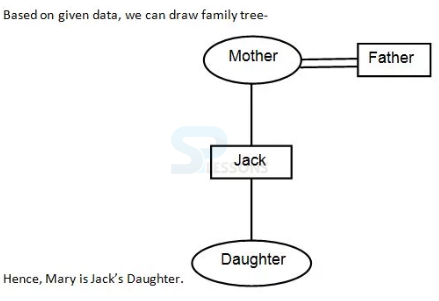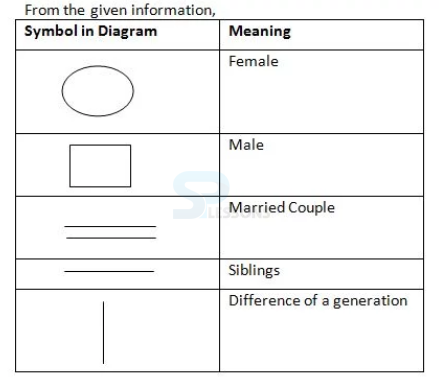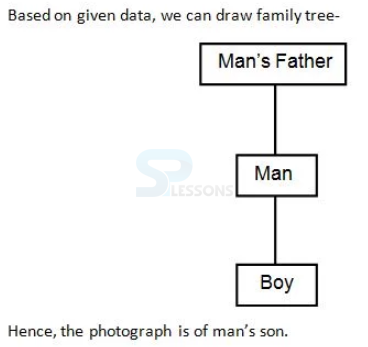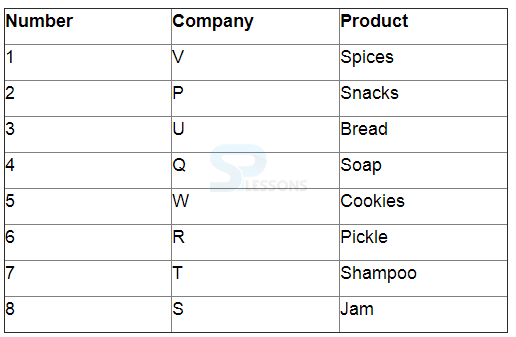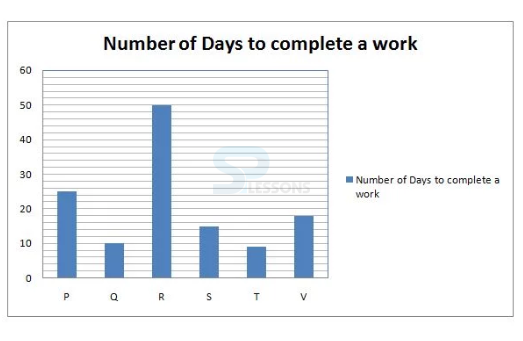 Introduction
Introduction
Aspirants of LIC Apprentice Development Officer (ADO) 2019, who are willing to enhance their career with insurance sector can check all the details in LIC ADO's 2019 – Official Notification issued by LIC. The online examination Preliminary is scheduled to be conducted in [latex]{6}^{th}[/latex] and [latex]{13}^{th}[/latex] July, 2019 (Tentatively), Mains exam is scheduled to be conducted in [latex]{10}^{th}[/latex] August, 2019 .
Click Here - For Official Website
Candidates planning to take up employment in the Insurance sector must be aware of many of the terms policies and other such important information related to Prelims. The article LIC ADO Prelims Model Paper provides pattern Questions, and it helps the candidates to devise effective preparation strategies, by focusing on their strengths and weaknesses in different topics and also useful to the candidates while preparing Various Insurance, Banking & Government Exams like SBI PO, SBI Clerk, SSC CPO, SSC CHSL.
Preliminary Examination is important to qualify for the Mains Examination. Below mentioned data gives an overview of the LIC ADO 2019 Prelims Model Paper. The paper is divided into three sections i.e., Reasoning ability, Numerical Ability, English Language.
 Pattern
Pattern
Directions (1-5): Study the following information and answer the question given below.
Eight players – P, Q, R, S, T, U, V, and W sit around a square table in such a way that four of them sit on the four sides while the rest at corners. They play different games namely Football, Basketball, Badminton, Tennis, Cricket, Volleyball, Golf, and Squash. Some of them are facing the center while some are facing outside. (i.e away from the center)
Note: Same directions means that if one person facing the center then the other person also faces the center and vice versa. Opposite direction means if one person is facing the center then the other person faces outside and vice versa.
- Q faces the center of the table and does not sit on any corner. V sits on one of the corners between the Squash player and Volleyball player. W sits second to the right of the Basketball player who faces the center. The Cricket player sits third to the left of Q. S sits opposite to W. P sits on the corner exactly opposite to T. The Basketball player sits third to the right of the Golf player. The Football player does not face the center. The Volleyball player sits opposite to Q, also faces in the opposite direction of Q and sits between Golf player and Cricket player. T who is the Cricket player sits immediate right to the Tennis player. The Tennis player faces the same direction as the U. The immediate neighbors of Q are facing opposite directions. The Golf player sits exactly opposite to Badminton player. The one who is on the immediate left of U is facing the same direction as W. R sits third to the left of W.
- A. P
B. U
C. T
D. Can’t be determined
E. None of these
- A. Badminton
B. Foot Ball
C. Golf
D. Can’t be determined
E. None of these
- A. The person who plays Squash
B. The person who plays Golf
C. The person who plays Basketball
D. Volleyball player
E. None of these
- A. None
B. One
C. Two
D. Three
E. Four
- A. P, V
B. P, R
C. V, R
D. Q, R
E. V, Q
- A. SFUDBSCID
B. SFUDBEBID
C. SFUBIDDBS
D. SFUDBSBID
E. None of these
- A. SGYEOQS
B. SGXEQOD
C. SGYEOQD
D. SGYEQOD
E. None of these
- A. SXRH
B. SXHR
C. XSRH
D. SXGR
E. None of these
- A. XEEMETEAZ
B. XEEOETEAZ
C. XEFOETEAZ
D. XEEOETEAY
E. None of these
- A. UFQJYUM
B. UFQJXPM
C. FUQJYPM
D. UEQJYEM
E. None of these
- A. 540
B. 580
C. 550
D. 590
E. 570
- A. 10
B. 12
C. 12.5
D. 13.25
E. None of these
- A. 3.075
B. 2.625
C. 1.916
D. 0.416
E. None of these
- ‘today positive decent found’ is written as ‘@6A @6V &7B @5Q’
- ‘people attend daily party’ is written as ‘@6V *6V #5B @5A’
- ‘regular fitness sound health’ is written as ‘@6A @8P #8O @5E’
- ‘picture perfect quality movie’ is written as ‘#6B #8B #8V @8Q’
- A. Sunday
B. Monday
C. Tuesday
D. Either Sunday or Monday
E. None
- A. #6B
B. #8B
C. #8V
D. @8Q
E. Cannot be determined
- A. &8B @5A
B. &7B *5A
C. &7B *6A
D. #6B *6A
E. None
- A. Bracket
B. Torture
C. Special
D. Leaves
E. None
- A. U
B. F
C. V
D. 9
E. 6
- A. D
B. 3
C. K
D. R
E. None of these
- A. 5
B. E
C. R
D. 9
E. P
- Three persons live between the one who likes Potato and the one who likes Brinjal. The one who likes Potato lives one of the floors above the floor numbered 4. Three persons live between the one who likes Drumstick and the one who likes Cauliflower. The person who lives on the ground floor like neither Carrot nor Brinjal. The one who likes Carrot lives on one of the floors below the floor numbered 4. The person who likes Cabbage does not live on one of the floors below the floor numbered 4. The person who likes Potato and Drumstick live on one of the floors above the floor numbered 4. The person who lives on the topmost floor does not like Potato. Three persons live between the one who likes Cabbage and the one who likes Carrot. Life between B and E. B lives on one of the floors above E. A lives on an odd numbered floor but not on the floor numbered three. Only one person lives between A and G. F lives immediately below the one who likes Carrot. Only two persons live between E and C. C does not live on the topmost floor. G does not like Carrot.
- A. Tomato
B. Carrot
C. Potato
D. Cauli Flower
E. None of these
- A. A – 5 – Drumstick
B. C – 3 – Tomato
C. B – 5 – Carrot
D. F – 2 – Cauli flower
E. None of these
- A. A
B. C
C. D
D. F
E. None of these
- A. G – Cauli Flower
B. A – Carrot
C. B – Brinjal
D. F – Potato
E. D – Tomato
- A. A
B. C
C. D
D. F
E. None of these
- A$B means A is not smaller than B
A@B means A is neither smaller than nor equal to B
A#B means A is neither greater than nor equal to B
A&B means A is neither greater than nor smaller than B
A*B means A is not greater than B
- A. Only I is true
B. Only III is true
C. Only IV is true
D. Either III or IV is true
E. Either III or IV and I are true
- A. None is true
B. Only I is true
C. Only II is true
D. Only III is true
E. Only IV is true
- A. I, II and III are true
B. I, II and IV are true
C. I, III and IV are true
D. I, III and IV are true
E. All are true
- A. Sister
B. Niece
C. Wife
D. Daughter
E. Mother
- A. Himself
B. His son
C. His father
D. His brother
E. His nephew
- A. Bread
B. Spices
C. Snacks
D. Soap
E. Shampoo
- A. P
B. V
C. R
D. Q
E. W
- A. Shampoo
B. Pickle
C. Bread
D. Snacks
E. Soap
- A. T
B. P
C. U
D. Q
E. None of these
- A. W
B. Q
C. U
D. P
E. V
1. 45% of 300 + √? = 56% of 750 – 10% of 350
- A. 260
B. 62500
C. 230
D. 52900
E. None of these
- A. 3
B. 5
C. 10
D. 20
E. None of these
- A. 3481
B. 3561
C. 3721
D. 3969
E. None of these
- A. 32
B. 38
C. 42
D. 48
E. None of these
- A. 289
B. 271
C. 239
D. 261
E. None of these
- A. 102.56
B. 118.96
C. 100.96
D. 112.76
E. None of these
- A. 175
B. 125
C. 115
D. 135
E. None of these
- A. 8
B. 2
C. 18
D. 12
E. None of these
- A. 18
B. 28
C. 63
D. 73
E. None of these
- A. 25
B. 35
C. 15
D. 45
E. None of these
- A. 5
B. 3
C. 6
D. 7
E. None of these
- A. 340
B. 440
C. 880
D. 580
E. None of these
- A. Rs.360
B. Rs.385
C. Rs.240
D. can’t be determined
E. None of these
- A. 200, 250, 300
B. 300, 200, 250
C. 600, 400, 200
D. 600, 400, 500
E. None of these
- A. 9
B. 11
C. 10
D. 25
E. 12
- A. 6
B. 8
C. 10
D. 12
E. 20
- A. 12
B. 8
C. 4
D. 6
E. None of these
- A. 5 days
B. 8 days
C. 4 days
D. 9 days
E. None of these
- A. 5 m
B. 6 m
C. 8 m
D. 10 m
E. Cannot be determined
- A. 50
B. 30
C. 65
D. 35
E. 40
- A. Rs.108
B. Rs.104
C. Rs.112
D. Rs.120
E. None of these
- A. 40
B. 50
C. 36
D. 48
E. None of these
- A. 12
B. 13
C. 14
D. 15
E. 16
- A. Rs. 2312
B. Rs. 2024
C. Rs. 2484
D. Rs. 2532
E. None of these
- A. Rs. 84000
B. Rs. 96000
C. Rs. 100000
D. Rs. 104000
E. Rs. 80000
- A. 4.4 seconds
B. 4.5 seconds
C. 3.24 seconds
D. 4 seconds
E. None of these
- A. 12VS/(9V+S)
B. 5VS/(4S+V)
C. VT/3S
D. 9VS/(4S+V)km/h
E. None of these
- A. 10%
B. 15%
C. 18%
D. 20%
E. 25%
- A. 20000
B. 30000
C. 40000
D. 50000
E. None of these
- A. 97
B. 92
C. 95
D. 98
E. 90
- A. 350
B. 320
C. 360
D. 370
E. 380
- A. 12
B. 18
C. 15
D. 10
E. 11
- A. 40.5
B. 42.5
C. 49.5
D. 51.5
E. 50.5
- A. 8
B. 5
C. 6
D. 7
E. 9
- A. 42
B. 24
C. 38
D. 44
E. 14
1. Directions (Q.1-10): Read the following passage carefully and answer the questions given below it. Certain parts are given in bold to answer some of the questions based on the passage.
One of the most important things to notice about the power of art is the way in which great works continue to exert their influence through the ages. Scientific discoveries which are of major importance at the time they are made are superseded. Thus, Newton’s theory of gravitation has been superseded by Einstein’s theory of relativity. Hence the work of great scientists has value in stages on the way to a goal which supersedes them. Broadly speaking, the achievements of generals, politicians, and statesmen have importance only in their own time.
Hence these people and their acts, great as they may have been are like milestones which mankind passes on its way to something else. They may be juxtaposed in future but then, only to praise the contemporary work. But with the work of art, it is not so. The place which they occupy in the estimation of succeeding ages and the power which they exercise over men’s spirit is as great as they were in the age which produced them; indeed, their power tends to increase with time, as they came to be better understood.
1. The power of art can be judged through ?
- A. Its influence on a few individuals
B. its influence on the people over the years
C. the greatness of great artists
D. the opinion of great thinkers
E. Both 1 and 2
- A. the theory of relativity has nothing to do with the theory of gravitation
B. the theory of relativity is new in comparison to the theory of gravitation
C. the theory of relativity is an improvement over the theory of gravitation
D. the theory of relativity has suppressed the theory of gravitation
E. Both 2 and 3
- A. excel
B. absurd
C. diverge
D. replace
E. embed
- A. they are inscribed on the milestones
B. they have contemporary relevance
C. they have topical and historical importance
D. people tend to forget those achievements with time
E. they are strong and lasting stones
- A. a work of art has a greater influence on mankind than the scientific ones
B. Newton’s discoveries were inferior than that of Einstein’s
C. achievements by esteemed men are destined to be forgotten
D. Both a and b
E. 1, 2 and 3
- A. work of art
B. scientific discoveries by Newton and Einstein
C. Both 1 and 2
D. Achievements of generals, politicians, statesmen etc.
E. 1, 2 and 4
- A. Because it is not in their interests
B. Since they are not relevant in the present time
C. people remember only the influential works
D. any work howsoever great loses it importance with time
E. None of these
- A. a work of art is as permanent as the work of a scientist
B. The influence of a work of art increases from age to age unlike the work of a scientist
C. a work of art has no material value like the work of a scientist
D. a work of art is an expression of creative power while the work of a scientist is not
E. Both 2 and 3
- A. preposterous
B. outmoded
C. defunct
D. modern
E. archaic
- A. Generals, politicians, statesmen
B. men with profound knowledge
C. artistic works
D. Both 1 and 2
E. scientific discoveries
- A. BC
B. AC
C. AB
D. BD
E. No Error
- A. BC
B. AB
C. BD
D. CD
E. No Error
- A. AB
B. CD
C. BC
D. AD
E. No Error
- A. CD
B. AD
C. BC
D. CD
E. No Error
- I. dawn
II. slew
III. bellicose
IV. siege
- A. II , IV
B. I
C. II
D. III
E. All fit
- I. torpidity
II. quiescence
III. stagnation
IV. stasis
- A. I , II
B. III
C. I, IV
D. III, IV
E. All fit
- I. intransigent
II. uncompromising
III. pugnacious
IV. quarrelsome
- A. III
B. I, II
C. IV
D. III, IV
E. All fit
- I. equipoise
II. subsume
III. problem
IV. imbroglio
- A. III, IV
B. I
C. I, II
D. IV
E. All fit
- I. lured
II. fascinated
III. intrigued
IV. tempted
- A. II
B. I, III
C. II, IV
D. IV
E. All fit
- I. acerbic
II. consequences
III. claptrap
IV. ramifications
- A. III
B. I, IV
C. II
D. II,IV
E. All fit
- A. Protection
B. harrassment
C. Samaritans
D. amended
E. All correct
- A. bottleneck
B. capacity
C. stiffled
D. encouraged
E. All correct
- A. dire
B. processes
C. bureaucracy
D. motorisation
E. All correct
- A. administrative
B. presence
C. participation
D. espcially
E. All correct
- (A) Overworked courts cannot become a one-stop solution for performing legislative/executive tasks such as banning firecrackers/loudspeakers, enforcing seat belt/helmet wearing rules, or solving theological/civil society questions such as what the essence of Hinduism is or whether a mosque is integral for namaz.
- (B) Yet, the irony of democracy is such that the task of completing the world’s largest democracy’s political and social revolution cannot be laid only at the doorstep of the wise men and women in robes.
- (C) The abdication of responsibility by the legislature is even more damaging considering that the judiciary is groaning under the weight of a mammoth 3.3 crore pending cases.
- (D) The process of abolishing religious or secular hierarchies/injustices cannot become deep-rooted if it is merely judicial or legal. Take the Supreme Court’s recent directive urging new legislation to curb lynching.
- (E) Politically-motivated lynchings targeting a community do not happen because of the absence of laws. They happen because of a willful subversion of laws by the executive backed by mobs riding on electoral majorities.
- (F) In this context, should the valuable time of the judiciary be spent in entertaining and delivering verdicts on Public Interest Litigations (PILs), seeking, to take a couple of instances, a ban on pornography or making the national anthem mandatory in cinema halls? The PIL, a unique and powerful tool to seek justice for the weakest sections, has now degenerated.
- A. D
B. B
C. F
D. E
E. C
- A. C
B. B
C. E
D. F
E. D
- A. F
B. E
C. B
D. D
E. C
- A. B-D
B. A-E
C. C-F
D. E-F
E. D-E
- A. C-F
B. A-C
C. B-D
D. D-E
E. E-F
- A. C
B. A
C. F
D. E
E. D






